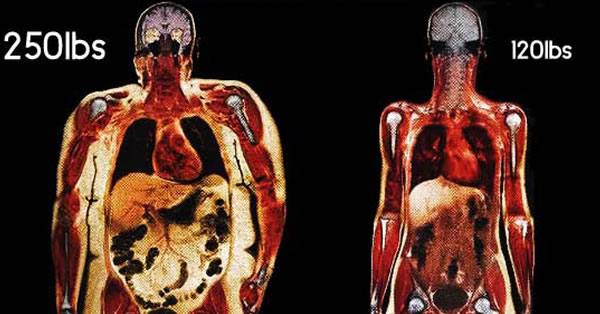In our earlier blog on Cancer and Food we discussed the role that specific types of food play in increasing (and decreasing) a person’s risk of developing cancer. We are discussing this because it is estimated that 30% of cancers can be prevented through changes in our lifestyle. In New Zealand this represents around 7000 fewer people a year having to go through the hell that is a cancer diagnosis and treatment. We concluded however that the relationship between cancer and food is less about the specific type of food we eat and much more about how fat it makes us.
It’s the FAT that really gets us
In our previous blog we described a very high quality European study which showed there was a clear relationship between the amount of processed meat people eat and their risk of dying from cancer. What this study also found was that those that consume the most meat, also ate the fewest fruit and vegetables and were more likely to smoke, while those who ate a lot of meat also drank a lot. These were the people at greatest increase in risk for Cardio Vascular Disease and Cancer.
What scientists are increasingly coming to understand is that those with greater body fat are at the greatest risk of developing many different types of cancer. What makes us fat? Eating foods high in fat, salt, sugar, drinking calorie dense alcoholic drinks frequently, not filling up with nutrient dense, high-fibre, low-calorie fruit and vegetables, and not moving and using our bodies.
There are a few different ways (that we currently understand) for increased body fat to increase our risk of cancer:
- Those who have too much body fat have elevated levels of hormones and growth factors (like insulin and leptin) and these can promote cancer cell growth
- Fat around people’s middles in particular increases the risk of colon and endometrial cancers through a specific process called hyperinsulinaemia
- In men, fatness is related to lower serum testosterone levels, which in turn may be associated with enhanced risk of or adverse outcome in advanced prostate cancer.
- Greater body mass and fat is associated with a low-grade chronic inflammatory state which can promote cancer development.
So when it comes to cancer body fat is not good, but as a nation and as a world we are getting fatter. This worldwide ‘fat epidemic’ is not because humans have undergone some rapid evolution in our psychology since the 1960s, and have suddenly lost all ability to exert any self-control around food (hint – we pretty much had none before as well).
Food and the Environment is Key
What has changed is the way in which food (and alcohol) is made, sold, and advertised, its availability, how we eat it, the environment we live in. All these things have a more important role to play in changing our risk of obesity related cancer than individual behaviour change, requiring us to override an evolutionary response to eat when food is available. We are primed to want to stuff our faces when we see energy dense food – it is partly how we made it as a race – picking at a bit of wild lettuce and limiting ourselves to ‘just sliver of woolly mammoth liver thanks’ was not going to give us a survival advantage.
Getting manufacturers to reduce the salt, fat and sugar (and in the case of processed meat use fewer nitrates) would be a good step in improving the health of everyone. In NZ public health doctors have recently pointed out what a really easy thing it would be to reduce the salt in processed foods like bread – it would be easy to achieve by setting a maximum limit, the consumer wouldn’t even notice and the number of deaths attributable to excess salt in our diets would reduce (a lot). It is a no brainer.
Health cheque and Appetite for Destruction outline a number of very cost-effective strategies that we can implement to stop people getting fatter (mostly without people even knowing much has changed).
Individually motivated and maintained behaviour change (changing the food we eat, how much of it, and doing more exercise) is one the hardest, most difficult things for a society to achieve on the sort of level we need to reduce our rates of cancer. Investing money in such strategies, while not unimportant, is a REALLY poor spend for our money compared to other programmes. Things like education campaigns, physical activity programmes, community weight loss programmes are just not as effective on a population wide scale as the big structural changes we can implement, and have limited long term success.
So while we support and encourage a mindful low risk individual approach to what we eat and drink, the Government needs to focus policy on those things that works best for most impact.

